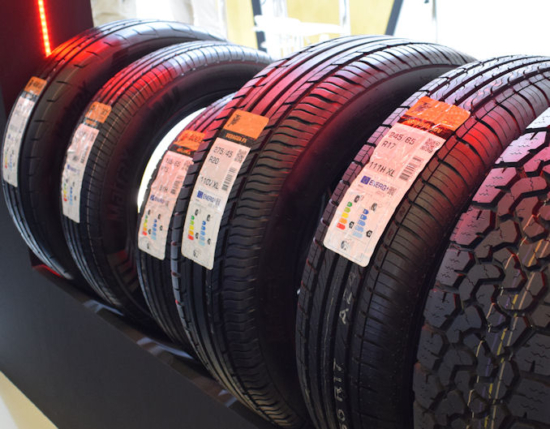India announces new tyre standards
 The regulations will apply to newly-designed tyres from 1 October (Photo: T&A/Stephen Goodchild)
The regulations will apply to newly-designed tyres from 1 October (Photo: T&A/Stephen Goodchild)
Indian consumers will soon benefit from tyre performance requirements very similar to those covering tyres sold in the UK and Europe. The country’s Ministry of Road Transport and Highways (MoRTH) announced the upcoming regulatory change on 28 June 2022.
The amendment to India’s Central Motor Vehicles Rules covers rolling resistance, wet grip and rolling sound emissions for C1 (passenger vehicle), C2 (light commercial vehicle) and C3 (truck and bus) tyres. MoRTH says the changes will mandate that tyres meet the wet grip requirements and stage two limits of rolling resistance and sound emissions specified in India’s Automotive Industry Standard 142:2019, thereby bringing regulations in line with UNECE regulation 117.
Newly-designed original equipment C1, C2 and C3 tyres will have to adhere to the new rules from 1 October 2022. Existing original equipment tyre designs will have to meet rolling resistance and wet grip requirements from 1 April 2023 and requirements for rolling sound from 1 June 2023.
Apollo welcomes informed purchase decisions
Apollo Tyres “wholeheartedly” welcomes the MoRTH notification. In a statement, Satish Sharma, president of the company’s Asia Pacific, Middle East & Africa (APMEA) region, commended the benefit this will bring: “Customers would be able to make informed purchase decisions with respect to key performance parameters while buying new tyres once the Automotive Industry Standards (AIS 142:2019) kick in, along with the voluntary phase of star label by Bureau of Energy Efficiency.”
According to Sharma, these standards will also “set in motion the direction towards products that are more sustainable and safer.” He foresees customers gaining a greater understanding of “the price-value equation of the products they are buying” thanks to the standards.
Furthermore, Apollo anticipates a qualitative improvement within India’s tyre sector. Sharma observes that comprehensive testing infrastructure is required to implement these standards. “The government’s regulations are nudging the entire automotive industry to come at par with the developed markets, thereby enhancing the export appeal and potential of Indian products.”
Sharma concludes by noting that Apollo Tyres enjoys a particular advantage when it comes to implementing the new regulation: “Apollo Tyres’ experience in Europe, of providing tyres with superior label values ensures that we are better prepared to incorporate these standards in India, and offer high performance, technology-leading products to the Indian customers.”




Comments